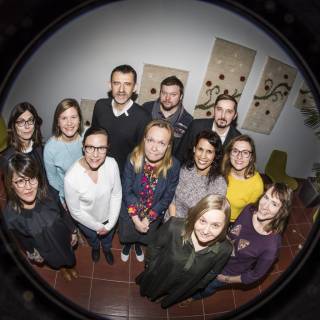
EduKnow is a research group focusing on the Knowledge, Power, and Politics in Education. We are based in the Faculty of Education at the University of Tampere, and our members are working around the world from different research discipline backgrounds. As a research group, we are inclusive and host different theoretical and methodological approaches to the group’s research interests.
Our group particularly focuses on the institutions of compulsory school education and higher education. Our geographical contexts of research span multiple countries and continents, as we are interested in understanding how changing governance practices unfold in and are specific to local contexts. We acknowledge Western bias in literature on governance in education, and thus aim to take our research to underexplored contexts as well as to enrich our theoretical and methodological sources with insights from outside of Anglo-American academia.
Research questions inspiring our research agenda
We are interested in understanding how societies are governed, and, specifically, how education and knowledge contribute to and function as governance technologies. With respect to the role of knowledge in the governance of education, our main question is: how do particular knowledge and its producers gain and exercise power in education governance? How is knowledge production, in addition to its use, embedded in politics and how does it contribute to power relations?
These questions spur from our objective to study the means and effects of governance of education, understanding governance as both a networked structure that transcends multiple borders, including state ones, and a bundle of mundane practices and tools that affect how people think of themselves as actors and how they lead personal and professional lives. The intertwinement of traditional state-level structures as well as for-profit actors, academia, and supranational agencies that transcend national borders, manifest new governance configurations. Moreover, increasing involvement of new governance tools, particularly forms of accountability and evaluation that rely on the production of quantitative information, are both the effects of the emerging governance structures and the means by which these structures spread and exercise power.
Building on various strands of post-structuralist social theory, we understand power as distributed and relational, assuming that diverse interests and practices require modification for any governance practice to succeed. Power is assembled through and relies upon the work of actors located in different sites. It is always uncertain; thus, it is something that needs to be examined instead of employed as an explanation in research.
Continuing with post-structuralist theorizing, we see governance, power and knowledge as highly intertwined. Governance practices, the exercise of power and the ensuing power relations both rely on and produce knowledge as a means of governance. We see knowledge as a central source of evidence for policy-making as well as a resource of policy legitimation. In contemporary times, quantitative data is increasingly given the status of the most effective and legitimate form of knowledge on education. Our group approaches data as defining, as opposed to merely describing, educational realities, and our research interest is based on the premise that many decidedly political choices about data and its use are made during the production phase. Examining the role of knowledge in education governance thus takes us to the questions of both how governance is transformed and how it is exercised through new means and actor constellations.
The use of knowledge in policymaking appears to be paradoxical. The emphasis on evidence-based policy is well acknowledged, but as has been pointed out, research cannot deliver in the face of politicians’ urgent needs, political preferences, and the lean towards ideologically biased knowledge. In addition, the smoothness of the flow of knowledge in governance is called into question.
